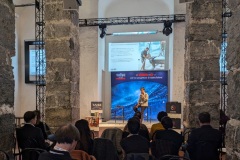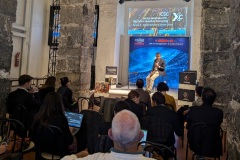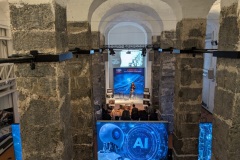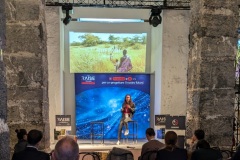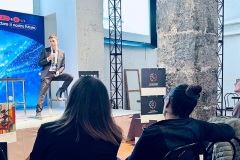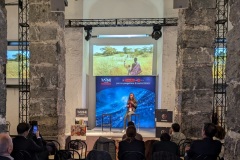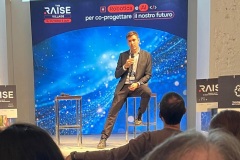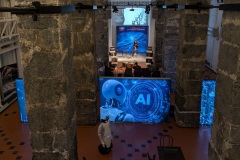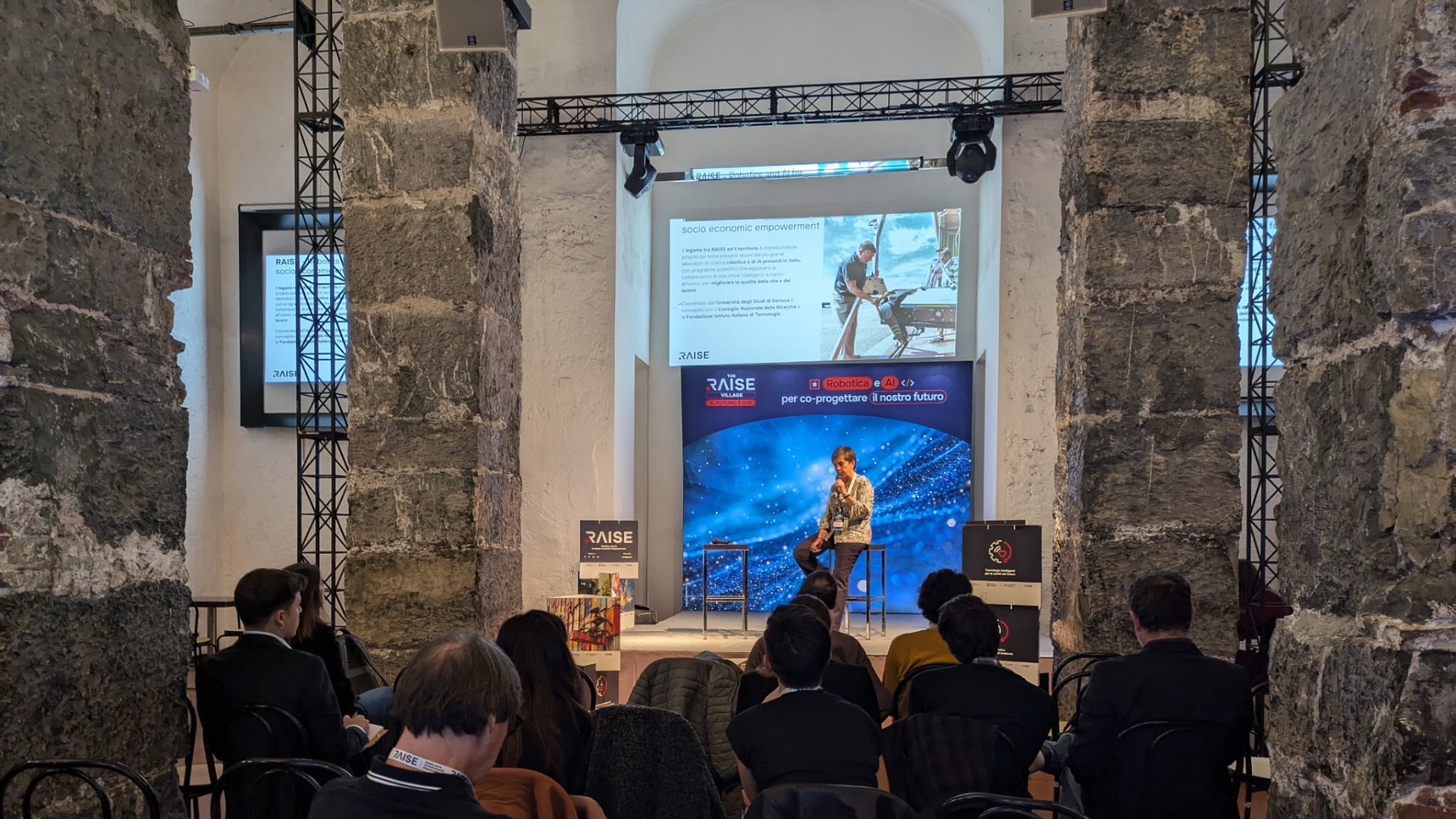
The workshop “Technologies for Well-being and Inclusion in an Urban Context”, organized by Spoke 1, took place on October 30 at the RAISE Village. The event aimed to present the public with the achievements and challenges of projects funded by the PNRR and European initiatives, all dedicated to enhancing quality of life in urban settings.
In addition to the RAISE project, representatives from NBFC and CN HPC and the European WELLBASED project participated. This gathering served as a platform to share ongoing activities, discuss research efforts, and present innovative solutions addressing urban challenges. Special focus was given to enhancing services, accessibility, public space usage, urban ecosystem quality, and social inclusion.
Through shared experiences, the workshop examined the potential of digital technologies and new urban management models to create cities that are more inclusive, sustainable, and focused on the well-being of both citizens and the urban ecosystem, thereby improving quality of life in a holistic way.
The event opened with an introduction by Michela Spagnuolo, who outlined the day’s objectives. She emphasized the importance of exploring how urban technologies can promote inclusive engagement, transforming cities from simply smart environments to responsive, citizen-oriented spaces through the application of artificial intelligence and robotics.
Several innovative projects followed. Luca Lazzarini from DAStU/Politecnico di Milano discussed the NBFC project, detailing policies and plans for urban biodiversity, along with the issues, challenges, and future paths for enhancing urban environments and public health. Alberto Leporati from the University of Milan-Bicocca spoke on the CN HPC project, illustrating technological solutions and challenges within the digital society framework.
Antonia Bruno, also from the University of Milan-Bicocca, presented the EI MUSA project, focusing on urban regeneration with a microscale perspective on biodiversity. She shared strategies for urban redevelopment, emphasizing the need for an integrated and sustainable approach.
Representatives from the European WELLBASED project, Alberto Pilotto and Marina Barbagelata, addressed energy poverty and well-being, particularly concerning elderly health. Their presentation highlighted how data collection can enhance the lives of vulnerable populations.
“Today, I had the chance to explore various approaches for improving people’s lives, especially regarding health and the quality of the environments they inhabit, such as cities and broader habitats. This exchange was insightful. For instance, I hadn’t considered how many bacterial species surround us and their significance for our health. This realization inspired me to consider incorporating these elements into our work at Spoke 9 of the National Center, where we design digital services aimed at improving quality of life. Integrating these aspects could be a promising approach,” remarked Alberto Leporati, from the University of Milan-Bicocca, who presented Spoke 9 activities for the National HPC, Big Data and Quantum Computing Center.
“It’s essential to foster synergies among national projects funded by the PNRR. Recently, we’ve seen significant institutional investment in crucial research fields for our society’s future. For example, I work at the National Center for Biodiversity, a core topic for local government agendas and scientific research programs. Biodiversity connects to many other issues, such as health, new technologies, and climate transition, demonstrating the importance of a collaborative, multi-scalar approach. I believe the added value of PNRR-funded research should be preserved and developed in the future to guide these initiatives towards socially relevant themes,” added Luca Lazzarini, of the Politecnico di Milano, representing Spoke 5 of the NBFC.
“The presentations today showcased the expertise mobilized by the PNRR, illustrating how a common challenge—enhancing well-being in an urban context—can be approached through diverse, complementary perspectives. Numerous ideas for integrating ongoing activities and expanding current initiatives emerged from the discussions. It was a rewarding day that also emphasized the need for a multidisciplinary approach, essential for tackling complex challenges such as urban well-being,” concluded Michela Spagnuolo, coordinator of Spoke 1.
The workshop provided a valuable forum for discussion and knowledge-sharing, where experts and participants explored the potential of digital technologies and new urban management models to create more inclusive, sustainable cities focused on improving the quality of life for all citizens.


